With birth control coverage somewhat up in the air these days, an unlikely hero has emerged: the IUD.
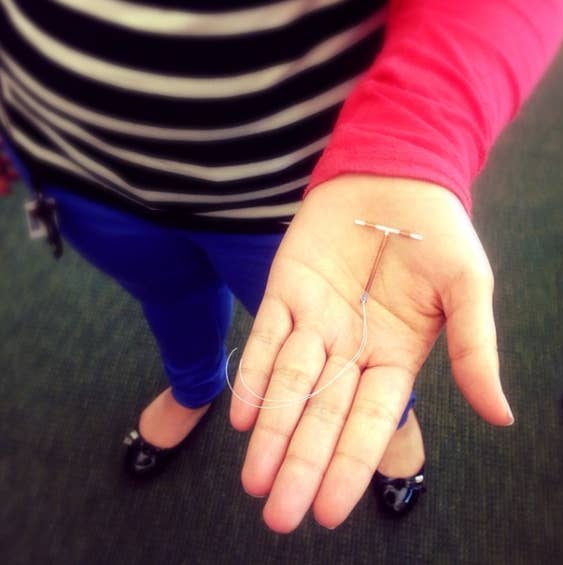
IUDs received some free promotion after the presidential election, with people tweeting about getting the IUD to deal with their uncertainty about what health insurance and reproductive rights might look like over the next four years.

So if you're considering an IUD — whether you're switching from another method or starting birth control for the first time — there are several important factors to consider.

1. First things first, there are two types of IUDs: hormonal and nonhormonal.
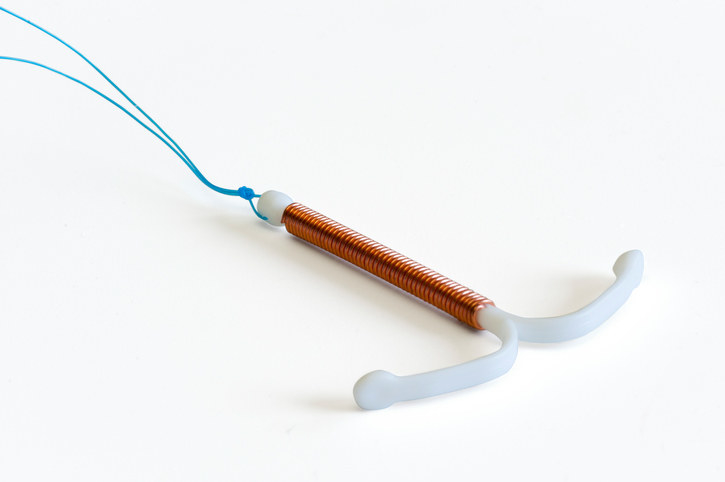
2. IUDs are so effective because they're hard to mess up.

3. You can get an IUD whether you've given birth or not.

4. If you get really heavy periods, the hormonal IUD might be a good option.

5. The copper IUD, on the other hand, won't do anything for a sucky period, so it's a better option for someone who doesn't really mind them.
6. The IUD might be a better option for you than other birth control methods if you have certain health conditions or risk factors.

7. IUDs probably won't help with acne and horrible PMS.
8. With the hormonal IUD, you'll probably experience some spotting during the first three to six months.

9. Your partner might feel the strings. It just happens.
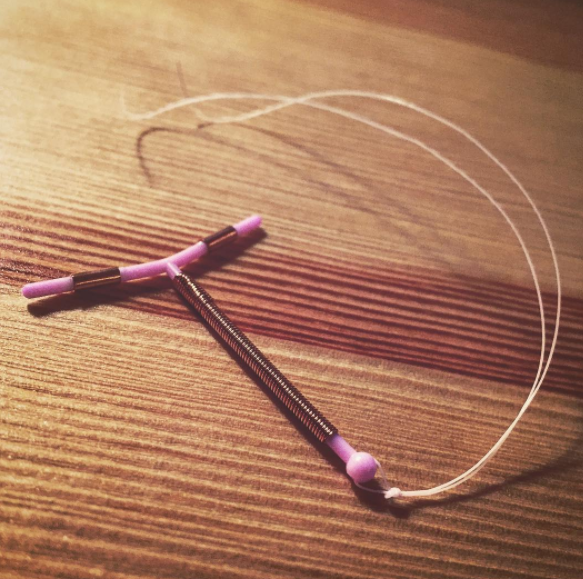
10. An IUD might be free under your insurance. But even if it's not covered, it's still a pretty cost-effective option.
11. Your doctor will typically want to schedule a consultation before they actually insert the IUD.
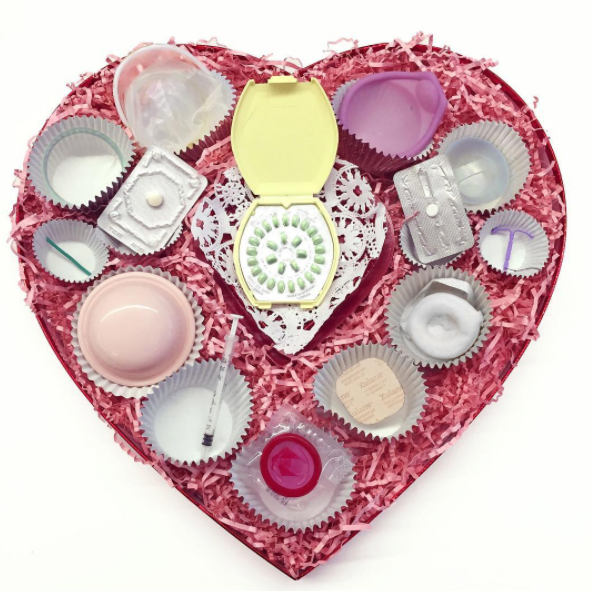
12. The insertion doesn't take long, but it can range from feeling mildly uncomfortable to very painful (depending on the person).

Here's a rundown of what happens during that IUD insertion visit:
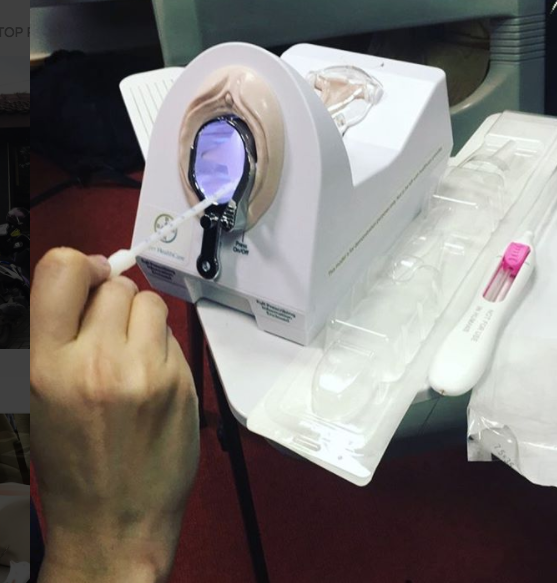
13. There are some risks associated with IUDs that, while rare, are important to talk to your doctor about.
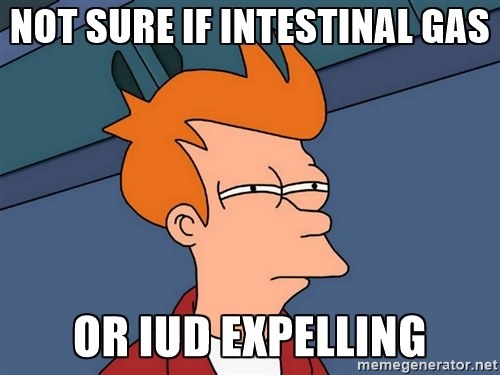
14. IUDs do not protect against STIs or HIV, so you'll probably need to keep using condoms.
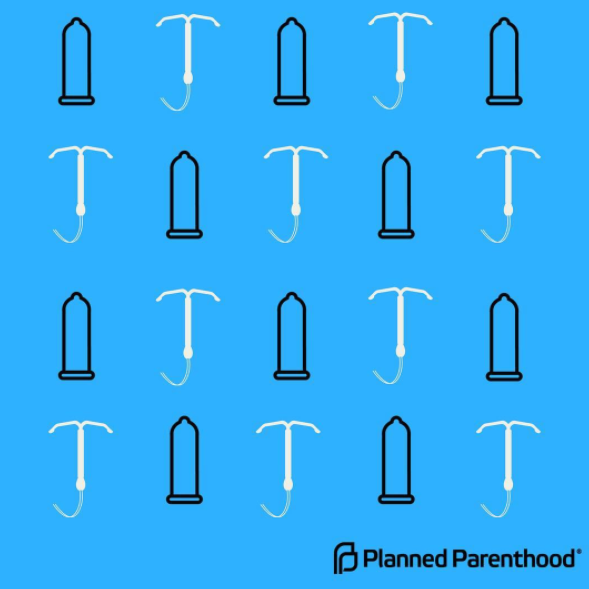
15. Obviously IUDs aren't for everyone.
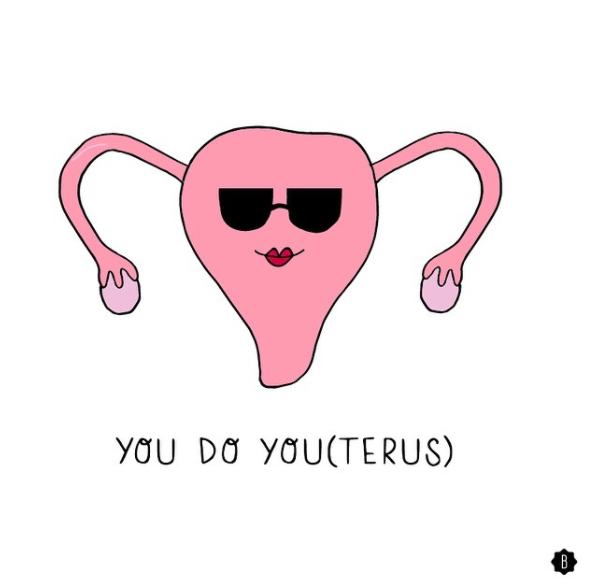
16. IUDs can be taken out by your doctor at any time, and it's possible to get pregnant as soon as they're out.
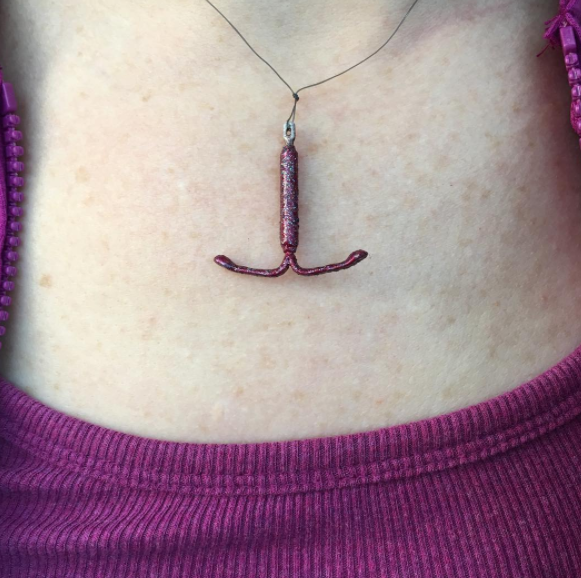
The bottom line: The IUD might be a great choice for you...or it might not be. Birth control is not one-size-fits-all.
Before you decide on a method — even if it sounds like the best option ever — talk to your doctor about your health, your lifestyle, your insurance, and all your wants and needs from a birth control. They'll help you decide which method is right for you.
And if you're not sold on the IUD but you still want a long-acting method, don't forget about the contraceptive implant, which is also over 99% effective at preventing pregnancy.
